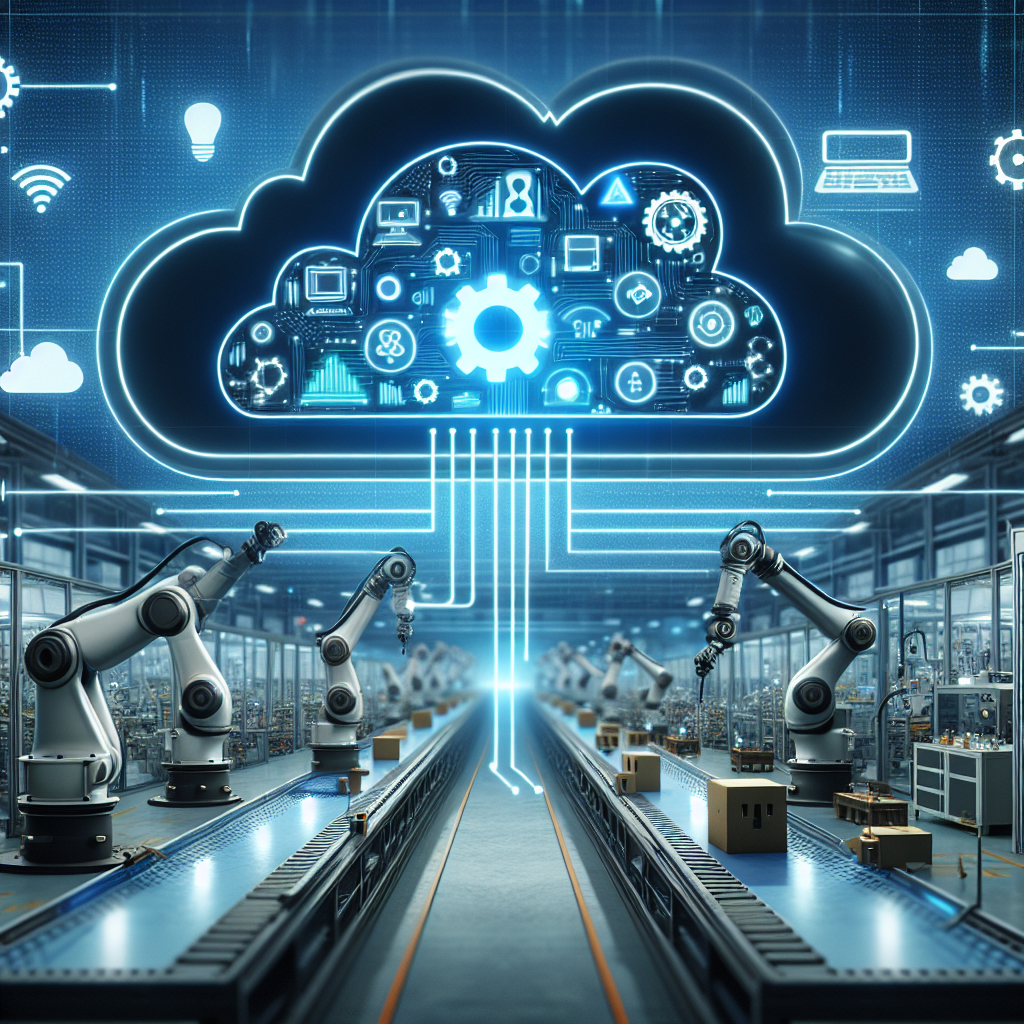In recent years, the manufacturing industry has seen a significant shift towards embracing new technologies to improve efficiency, productivity, and overall operations. Two key technologies that have been at the forefront of this transformation are Artificial Intelligence (AI) and Cloud Computing. When integrated effectively, these technologies have the potential to revolutionize the manufacturing sector, leading to smarter factories, optimized production processes, and enhanced decision-making capabilities.
AI in Manufacturing:
Artificial Intelligence, often referred to as AI, is a branch of computer science that aims to create machines that can perform tasks that typically require human intelligence, such as learning, reasoning, problem-solving, perception, and language understanding. In the manufacturing industry, AI is being used to analyze vast amounts of data, predict outcomes, automate processes, and enable machines to make intelligent decisions.
One of the key applications of AI in manufacturing is predictive maintenance. By analyzing data from sensors, machines, and other sources, AI can predict when a machine is likely to fail and schedule maintenance before a breakdown occurs. This proactive approach to maintenance can help reduce downtime, extend the lifespan of equipment, and lower maintenance costs.
Another important application of AI in manufacturing is quality control. AI-powered systems can analyze images and data in real-time to identify defects or anomalies in products, ensuring that only high-quality products are shipped to customers. This can help reduce waste, improve customer satisfaction, and increase overall efficiency in the production process.
AI is also being used in manufacturing for process optimization. By analyzing data from various sources, AI can identify patterns, trends, and opportunities for improvement in production processes. This can lead to more efficient use of resources, reduced lead times, and increased productivity.
Cloud Computing in Manufacturing:
Cloud Computing is a technology that allows users to access and store data and applications over the internet, rather than on local servers or personal computers. In the manufacturing industry, Cloud Computing is being used to store and access large amounts of data, collaborate with colleagues in real-time, and leverage advanced analytics and AI capabilities.
One of the key benefits of Cloud Computing in manufacturing is scalability. Cloud platforms can quickly scale up or down based on changing business needs, allowing manufacturers to easily adapt to fluctuations in demand or production requirements. This flexibility can help manufacturers reduce costs, improve agility, and stay competitive in a rapidly changing market.
Cloud Computing also enables manufacturers to access advanced analytics and AI capabilities without the need for significant upfront investments in hardware or software. By leveraging cloud-based tools and services, manufacturers can quickly deploy AI models, analyze large datasets, and gain valuable insights to improve decision-making and optimize operations.
Integration of AI and Cloud Computing in Manufacturing:
When AI and Cloud Computing are integrated in manufacturing, the possibilities are endless. Manufacturers can leverage the power of AI to analyze data, predict outcomes, and automate processes, while also taking advantage of the scalability, flexibility, and advanced analytics capabilities of the cloud.
One example of how AI and Cloud Computing are being integrated in manufacturing is in the area of supply chain management. By using AI algorithms to analyze data from suppliers, transportation networks, and demand forecasts, manufacturers can optimize inventory levels, reduce lead times, and improve overall supply chain efficiency. By storing and accessing this data in the cloud, manufacturers can collaborate with suppliers, partners, and customers in real-time, leading to more agile and responsive supply chains.
Another example of integration is in the area of product design and development. By using AI-powered design tools in the cloud, manufacturers can quickly generate and test multiple design iterations, optimize performance, and reduce time-to-market. This can lead to more innovative products, improved customer satisfaction, and increased competitive advantage.
FAQs:
Q: How can AI and Cloud Computing help manufacturers improve productivity?
A: By analyzing data, predicting outcomes, and automating processes, AI can help manufacturers optimize production processes, reduce downtime, and improve overall efficiency. Cloud Computing can provide the scalability, flexibility, and advanced analytics capabilities needed to support these AI applications.
Q: What are some challenges of integrating AI and Cloud Computing in manufacturing?
A: Some challenges include data security and privacy concerns, integration with existing systems, and the need for skilled personnel to develop and maintain AI models and cloud-based applications. Manufacturers should carefully consider these challenges and develop a clear strategy for implementation.
Q: What are some best practices for integrating AI and Cloud Computing in manufacturing?
A: Some best practices include conducting a thorough assessment of existing processes and systems, identifying key use cases for AI and Cloud Computing, developing a clear implementation plan, and providing training and support for employees. Manufacturers should also collaborate with trusted partners and vendors to ensure a successful integration.
In conclusion, the integration of AI and Cloud Computing in manufacturing has the potential to transform the industry, leading to smarter factories, optimized production processes, and enhanced decision-making capabilities. By leveraging the power of AI to analyze data, predict outcomes, and automate processes, while also taking advantage of the scalability, flexibility, and advanced analytics capabilities of the cloud, manufacturers can stay competitive in a rapidly changing market and drive innovation in the industry.

